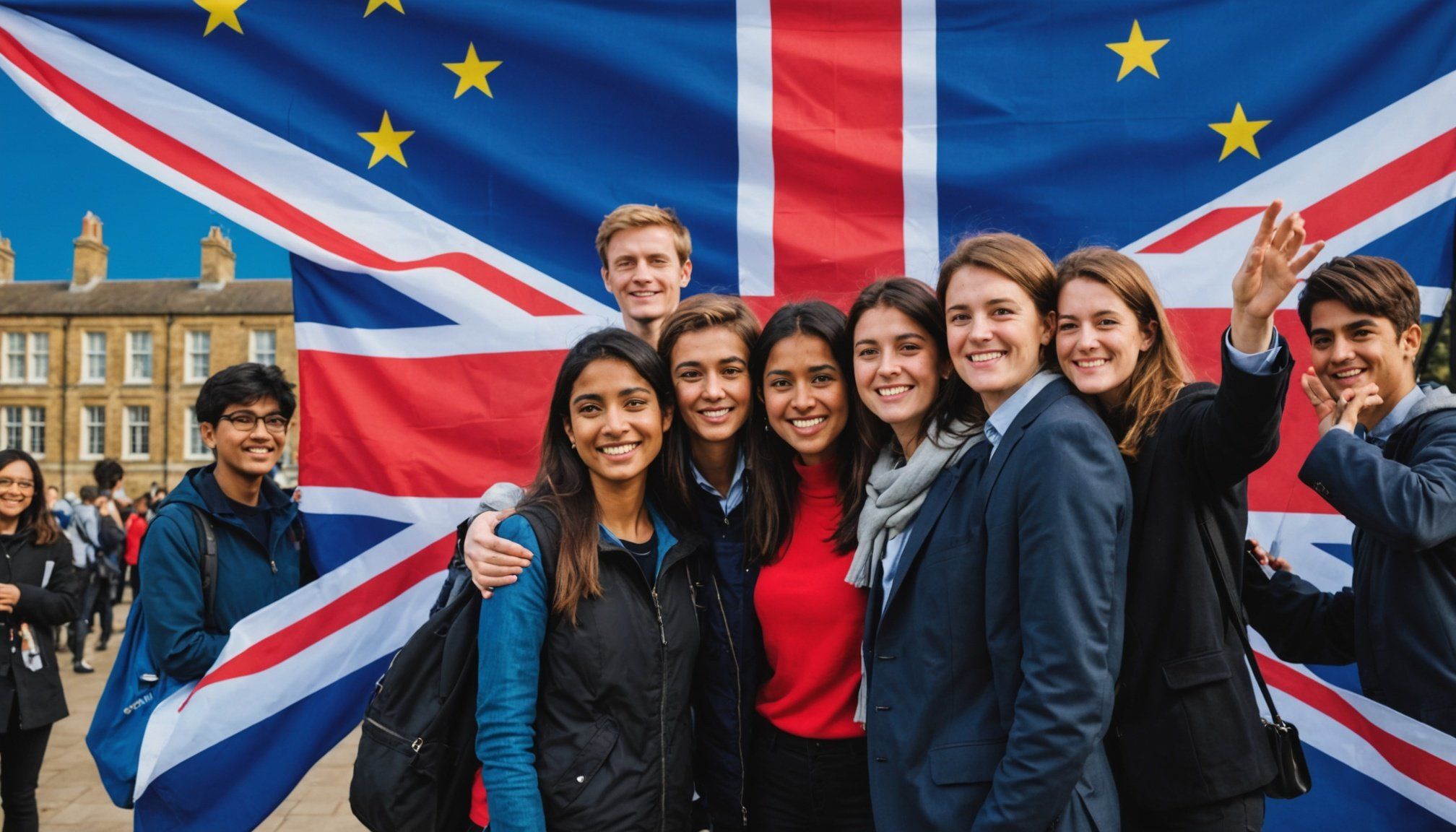Overview of Post-Brexit Challenges for UK Universities
In the wake of Brexit, UK universities face significant hurdles, especially in the arena of international student recruitment. One of the primary concerns is the decrease in international student numbers. The uncertainty surrounding Brexit has shifted perceptions, making the UK a less attractive study destination. This shift impacts not only the cultural diversity on campuses but also their financial health.
Brexit has also led to changes in visa and immigration policies. The new regulations have made it more complex for non-European students to obtain visas, creating further barriers to enrollment. Recruitment tactics require adjustments to address these tighter immigration controls, increasing the need for institutions to streamline and clarify these processes for potential international students.
In the same genre : How UK Fashion Brands Can Slash Return Rates and Elevate Customer Happiness: Proven Strategies Unveiled
The perception of the UK as a study destination post-Brexit plays a critical role. The country must now combat misconceptions and emphasize its world-class educational offerings to remain competitive. Marketing strategies need to be tailored to enhance the UK’s image, ensuring it remains a compelling option amidst growing global competition. Proactive and adaptive measures will be essential to overcoming these post-Brexit challenges and sustaining international student numbers.
Effective Visa Policies and Regulations for International Students
In the turbulent post-Brexit era, navigating the visa policies and immigration regulations has become more pivotal than ever for international students aiming to study in the UK. Current visa options, including the Student Visa and Graduate Route, offer varied pathways for prospective students. Despite these offerings, the consensus is that the UK’s visa processes are more convoluted than those of its rivals, such as Canada and Australia, which generally offer simpler and more approachable frameworks for processing students’ applications.
Also to see : Flood control solutions : prevention, protection, and sustainable management of floods
Enhancing visa processing efficiency is crucial to maintaining the UK’s competitive edge. Streamlined processes can ease the burden on applicants, rendering the UK a more attractive study destination.
Comparatively, more straightforward procedures can be found in competitor countries. These rivals often provide transparent steps with fewer bureaucratic obstacles, encouraging smoother transitions for students.
Recommendations would involve simplifying documentation requirements, expediting approval times, and providing clear guidelines. By doing so, UK universities could foster a more welcoming atmosphere, enhancing the overall experience for international students and boosting international recruitment endeavours.
Innovative Marketing Approaches to Attract International Students
As UK universities face post-Brexit challenges in international student recruitment, marketing strategies need a fresh, innovative approach to lure talent. Embracing cutting-edge digital marketing techniques is vital. Implementing targeted social media campaigns can enhance visibility among prospective students. Platforms like Instagram and TikTok can effectively engage students with relevant content. Additionally, search engine optimization (SEO) elevates a university’s digital presence, making it easier for students to find informative and captivating content online.
Digital Marketing Techniques
Creating engaging, relatable content should be a priority. This content can include testimonials from current students, virtual campus tours, and informative webinars about the application process. The goal is to resonate with potential students, showcasing the opportunities and unique experiences the UK offers.
Partnerships with International Agents
Establishing partnerships with international agents is a strategic move. These agents, embedded within local educational systems, have the leverage to represent UK universities effectively, promoting them to a broader audience. Training and supporting agents ensures they convey the university’s values and benefits accurately, strengthening international recruitment efforts.
By employing these innovative approaches, UK universities can enhance their appeal and conquer the post-Brexit recruitment landscape.
Financial Incentives for International Students
When it comes to enticing international students, financial incentives, like scholarships and affordable tuition fees, play a crucial role. Currently, UK universities offer a variety of scholarships, specifically designed to cater to international students from diverse backgrounds. These scholarships alleviate financial burdens and make studying in the UK more accessible. Furthermore, universities are exploring creative financial aid solutions to enhance their international recruitment strategies.
Ensuring competitive tuition fees is essential in attracting students globally. By benchmarking against leading study destinations such as the USA and Australia, the UK can remain a favourable option despite tuition hikes. Providing transparent and comparative analyses of tuition fees can empower students to make well-informed decisions about their education choices.
The option and availability of financial incentives directly influence international student numbers, thereby supporting UK universities in facing the post-Brexit challenges. Addressing financial concerns is integral to strengthening the international appeal of UK universities, as it not only impacts recruitment efforts but also reflects their commitment to diversity and inclusion. By continually refining scholarship opportunities and maintaining tuition fee competitiveness, universities can ensure a sustainable inflow of international students.
Case Studies of Successful International Recruitment Strategies
Analysing case studies provides insight into universities that have effectively navigated the post-Brexit landscape. Some institutions have achieved a marked increase in international student enrolment by adopting strategic recruitment success practices.
One such strategy involves unique partnership programs. For example, certain universities have collaborated with overseas educational bodies to create tailored initiatives aimed at bridging cultural and academic gaps.
These collaborations often include exchange programs and joint research projects that appeal to potential international students, enhancing recruitment successes.
Insights from university leaders reveal that maintaining a flexible and responsive approach to ever-changing market conditions is crucial. Leaders stress the importance of understanding global trends and student expectations when shaping their future strategies.
Emphasising strong communication channels and support networks is a recurring theme in successful recruitment efforts.
Additionally, universities have leveraged technology, including virtual open days and online counselling, to showcase their offerings beyond traditional best practices. These innovations ensure that students worldwide can access all needed information effortlessly.
By focusing on such targeted efforts, universities continue to refine and adapt their approach, bolstering their international appeal and enrollment figures in a post-Brexit environment.
The Benefits of a Diverse Student Body
A diverse student body brings numerous advantages to universities, enhancing both the campus culture and the learning environment. Firstly, international students introduce varied perspectives, fostering a rich tapestry of ideas and cultural exchange. This diversity prepares students for a globalised workforce, instilling global citizenship by encouraging open-mindedness and adaptability.
Moreover, international students enrich local economies, contributing through tuition fees and living expenses. They support local businesses and offer skills and innovations that enhance economic growth. Additionally, these students often partake in community activities, bridging cultural gaps and fostering inclusivity.
Universities benefit from diversity by improving their reputation and standing in global rankings. A varied student body attracts indigenous students and faculty, creating a melting pot of ideas and innovation. Such an environment supports creativity, driving student success and academic excellence.
Cultural events on campuses foster an inclusive atmosphere, promoting understanding and collaboration among students from different backgrounds. Universities that emphasise diversity not only champion inclusivity, but also equip students with invaluable interpersonal skills, preparing them for successful careers in diverse settings. Therefore, promoting global citizenship remains fundamental to recruiting and retaining international students.






